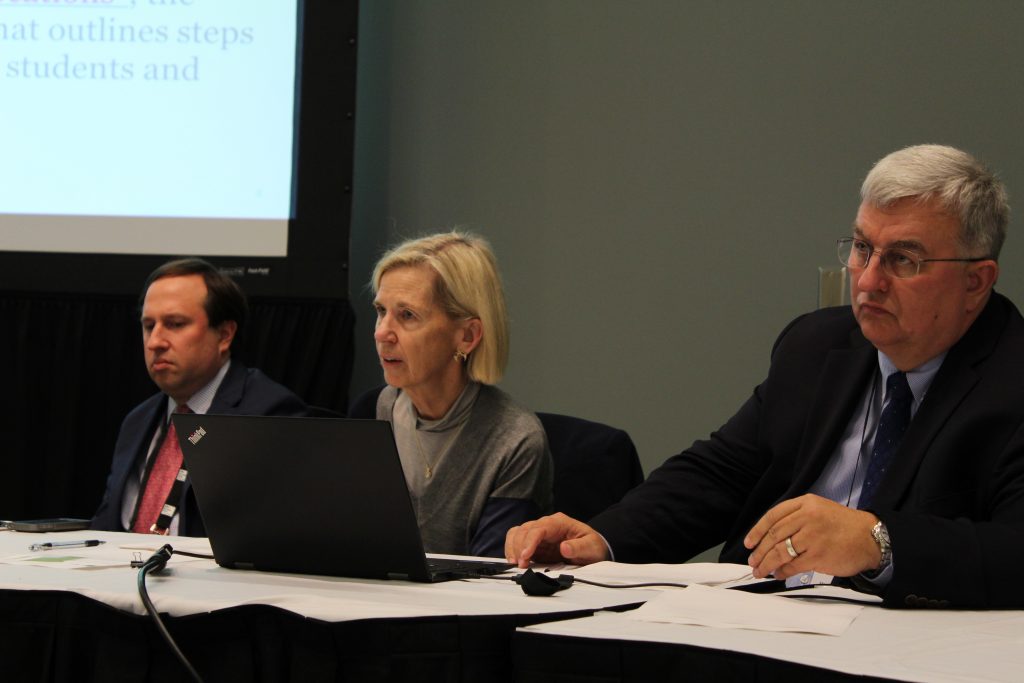The topic of undocumented students was tackled in a panel discussion at the AASA conference Thursday titled What to Do When ICE Comes to Your School District. The session raised legal and practical implications for school leaders.
The panel was made up of three presenters — Joshua Civin, general counsel, and Superintendent Jack Smith, both with the Montgomery County Public Schools in Rockville, Md., and Maree Sneed, a veteran education attorney with Hogan Lovells in Washington, D.C.
Together they discussed the importance of caring for all K-12 students, whether they happen to be undocumented or not, and the moral and legal obligations educators have in doing so. The key case that the panel brought up when dealing with Immigration and Customs Enforcement, is Plyler v. Doe. In this case, Texas refused to provide state funds to educate undocumented students, and the U.S. Supreme Court decided Texas had a duty to educate the children and to provide those funds.
“And of course, as you know the Supreme Court has said we must and should do that, and I agree with that decision, but I think it’s a much larger moral imperative than it is a legal obligation,” Sneed said.
Educators also must tread carefully when it comes to the information gathered from students. Proof of residency and age as a condition of enrollment is allowed, but questions regarding Social Security numbers and refusing to enroll students due to race are prohibited.
“A federal agency can issue its own warrant,” Civin said, “but that doesn’t generally have the force of court behind it and it’s the force of court that has an extra layer which adds implications for us under FERPA and the like.”
Civin explained how some school districts have made several strong statements involving ICE not being welcome on their school property and telling their school administrators that they should not provide any documentation to federal agents. He also stressed that federal law prohibits employers from instructing their employees to not cooperate with ICE and that leaders should always be mindful of the law.
School leaders also may find it difficult to follow federal law by wanting to fully assure parents that their children will be cared for in the school system. But it is important to not give a false sense of security that school officials have control over what happens out in the community, Civin said.
Schools are identified as a “sensitive area” where arrests and criminal searches generally do not occur, but enforcement is not completely ruled out on school grounds.
“It is not my job to sort out who should be where or why and what’s legal and what’s not in terms of background, experience or citizenship,” Smith said. “I just don’t see that as my place because sometimes that’s in conflict with the care and learning of students.”
The overall theme of the discussion was not necessarily a step-by-step instruction manual for confronting ICE, but more of an advisory that if educators are confronted by federal agents that they place the well-being of their students and their students’ education foremost in mind.
“I cannot imagine a world where we would not give education to every single child in our community, to fully, completely and entirely serve them.” Smith said.
(Steve Barnum, a senior at Middle Tennessee State University, is an intern with Conference Daily Online.)

